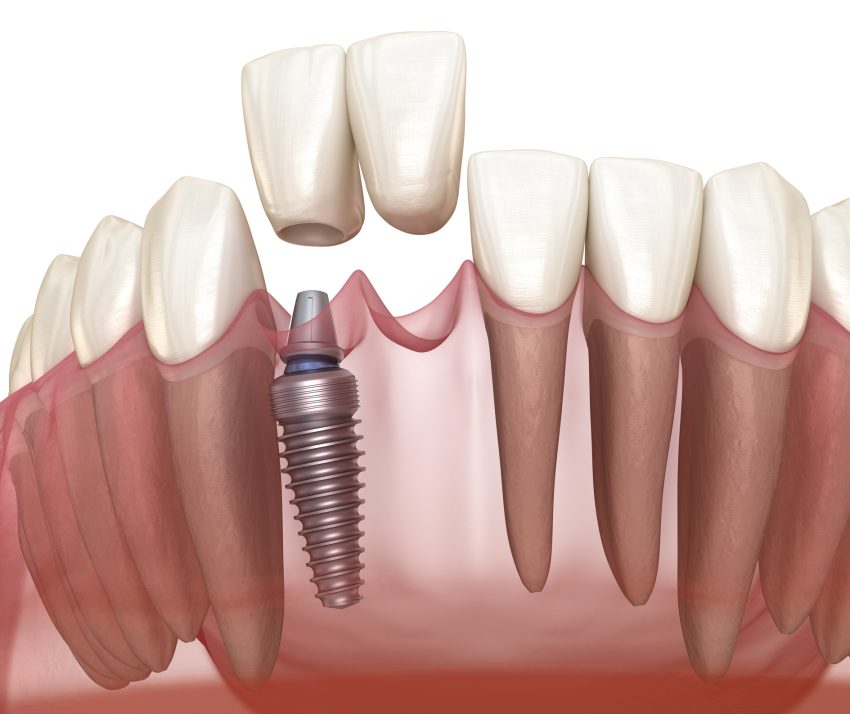Dental implants have emerged as a solution for those seeking to restore their smile in Melbourne. Providing a permanent and natural-looking alternative to dentures or bridges, dental implants have significantly transformed the landscape of restorative dentistry. However, the longevity of these implants is an area of concern for many. It’s important to note that the lifespan of dental implants is largely dependent on the individual’s oral hygiene practices and overall health. With proper care and maintenance, dental implants can last for many years, serving as a long-term investment in one’s oral health. We want to examine the lifespan of dental implants Melbourne, and the ways to ensure they last as long as possible.
Introduction to Dental Implants
This particular dental treatment is a remarkable innovation in the field of restorative dentistry. They comprise a titanium root that’s installed into the jawbone, atop which is affixed a customised dental crown to mimic the appearance of a natural tooth. Dental implants provide a sturdy and reliable solution for missing teeth, offering an aesthetically pleasing outcome that’s difficult to differentiate from the real thing. Melbourne has become a hub for dental implant procedures, with many individuals choosing this option to regain their smile. The procedure is typically carried out under anaesthesia, ensuring minimal discomfort for the patient.
What Affects the Lifespan of Dental Implants?
Several factors affect the lifespan of dental implants in Melbourne, including the patient’s hygiene practices and general health. Consistent and thorough cleaning of the implants and surrounding gums is crucial to ensure their longevity. Moreover, the individual’s lifestyle choices, including diet and habits such as smoking, can impact the durability of dental implants. Also, the experience and skill of the professional conducting the procedure plays a vital role in the success and endurance of these implants. It’s recommended to seek a dental professional with a proven track record in implant dentistry to ensure a favourable outcome.
Proper Care and Maintenance of Dental Implants
While dental implants are designed to be sturdy and durable, their longevity is largely dependent on how well they are cared for. Just like natural teeth, implants require regular cleaning to remove plaque and prevent gum disease. Regular check-ups are also essential for keeping your implants in optimal condition. These appointments allow your dentist to monitor the health of your implants and catch any potential issues at an early stage. It’s also best to avoid hard foods that could potentially damage the implants. Additionally, habits like smoking or excessive alcohol drinking can negatively affect the health of your implants. In essence, proper care and maintenance of dental implants in Melbourne involve good oral hygiene habits, regular dental check-ups, a healthy diet and lifestyle.
Common Misconceptions About Dental Implants
There are several misconceptions surrounding dental implants that often deter individuals from considering this option. One common myth is that the procedure is extremely painful. While there may be some discomfort during the healing process, the actual procedure is typically performed under anaesthesia, ensuring minimal discomfort. Another misconception is that dental implants look unnatural. On the contrary, implants are customised to match the appearance of the individual’s natural teeth, offering an aesthetically pleasing outcome. Lastly, many believe that dental implants require special maintenance. Like natural teeth, implants merely require regular brushing, flossing, and routine dental check-ups. Dispelling such myths is essential to make informed decisions about dental implants in Melbourne.
Advantages of Dental Implants Compared to Other Options
Choosing dental implants offers several advantages over other tooth-replacement options. Implants offer a fixed and comfortable fit, eliminating the hassles of slippage or discomfort during eating or talking. Moreover, dental implants are designed to fuse with the jawbone, promoting better oral health by preventing bone loss, a common issue associated with missing teeth. They also provide improved chewing efficiency and speech clarity, enhancing overall quality of life. Furthermore, dental implants offer a permanent solution, negating the need for periodic replacements as with other options. Opting for dental implants in Melbourne represents a long-term investment in one’s oral health and well-being.
Finding a Qualified Professional in Melbourne
Locating a qualified professional for dental implants in Melbourne is a critical step towards restoring your smile. It’s important to choose a dentist who has substantial experience in implant dentistry. Research and reviews can be helpful in making an informed choice. Look for a dentist who prioritises patient communication and comfort, and utilises advanced technology for the procedure. A good dentist will also provide comprehensive aftercare instructions to ensure the longevity of the implants. Remember, this treatment is a significant investment in your oral health, and the professional you choose can significantly influence the success of your procedure.
Conclusion
In conclusion, dental implants offer a viable, long-term solution for those looking to restore their smile. With proper care and maintenance, they can serve as a long-lasting investment in one’s oral health. Despite common misconceptions, the procedure is relatively comfortable, and the resulting implants blend seamlessly with natural teeth. Opting for dental implants in Melbourne enables individuals to enjoy the many advantages that this restorative option offers over traditional methods. However, the success of the procedure significantly hinges on choosing a knowledgeable and experienced dental professional. By making an informed decision and adhering to proper oral hygiene practices, individuals can enjoy the benefits of their dental implants for many years to come.
Any surgical or invasive procedure carries risks. Before proceeding you should seek a second opinion from an appropriately qualified health practitioner.


